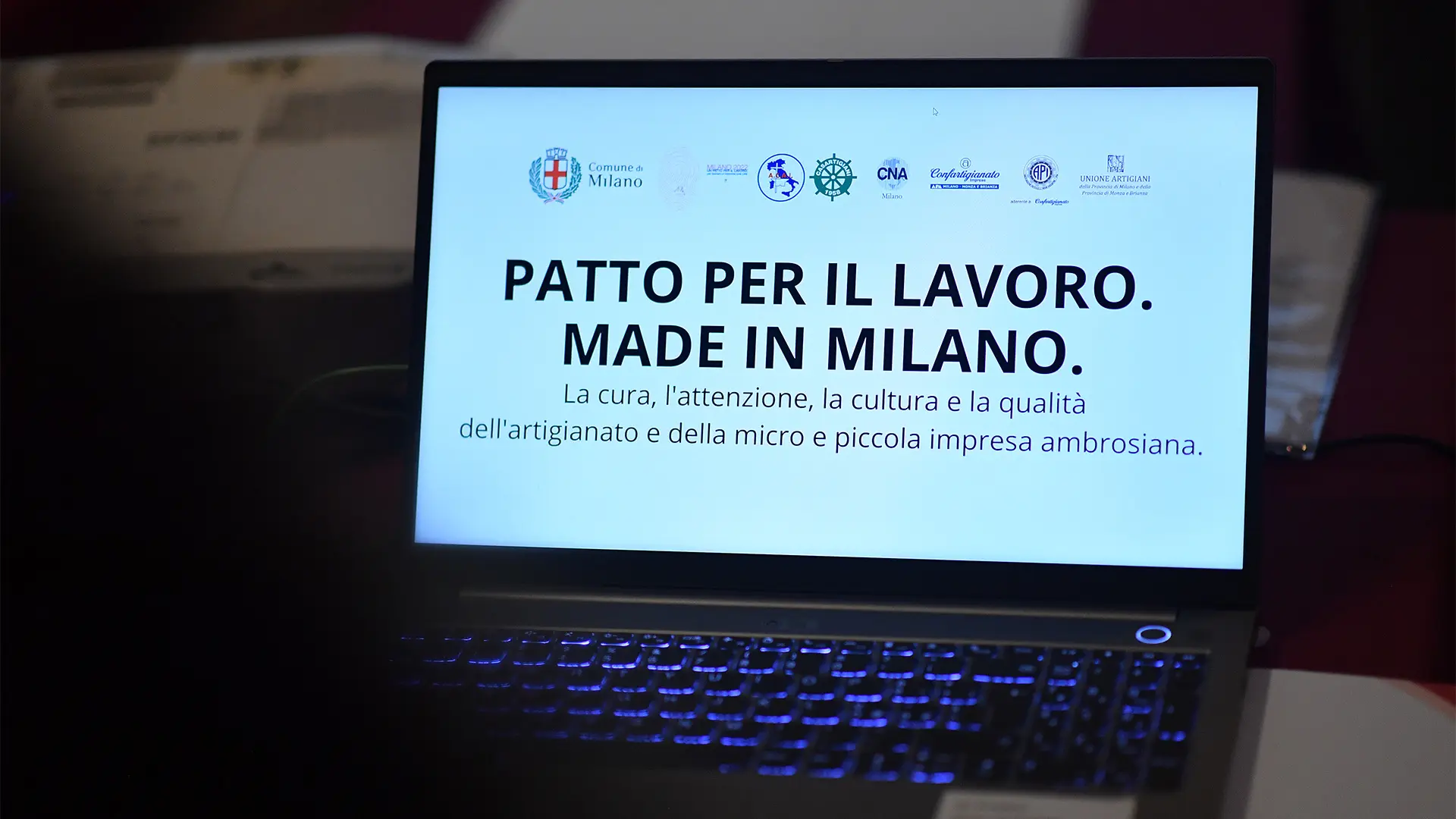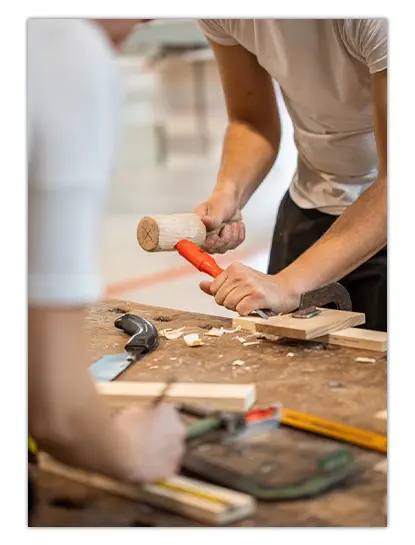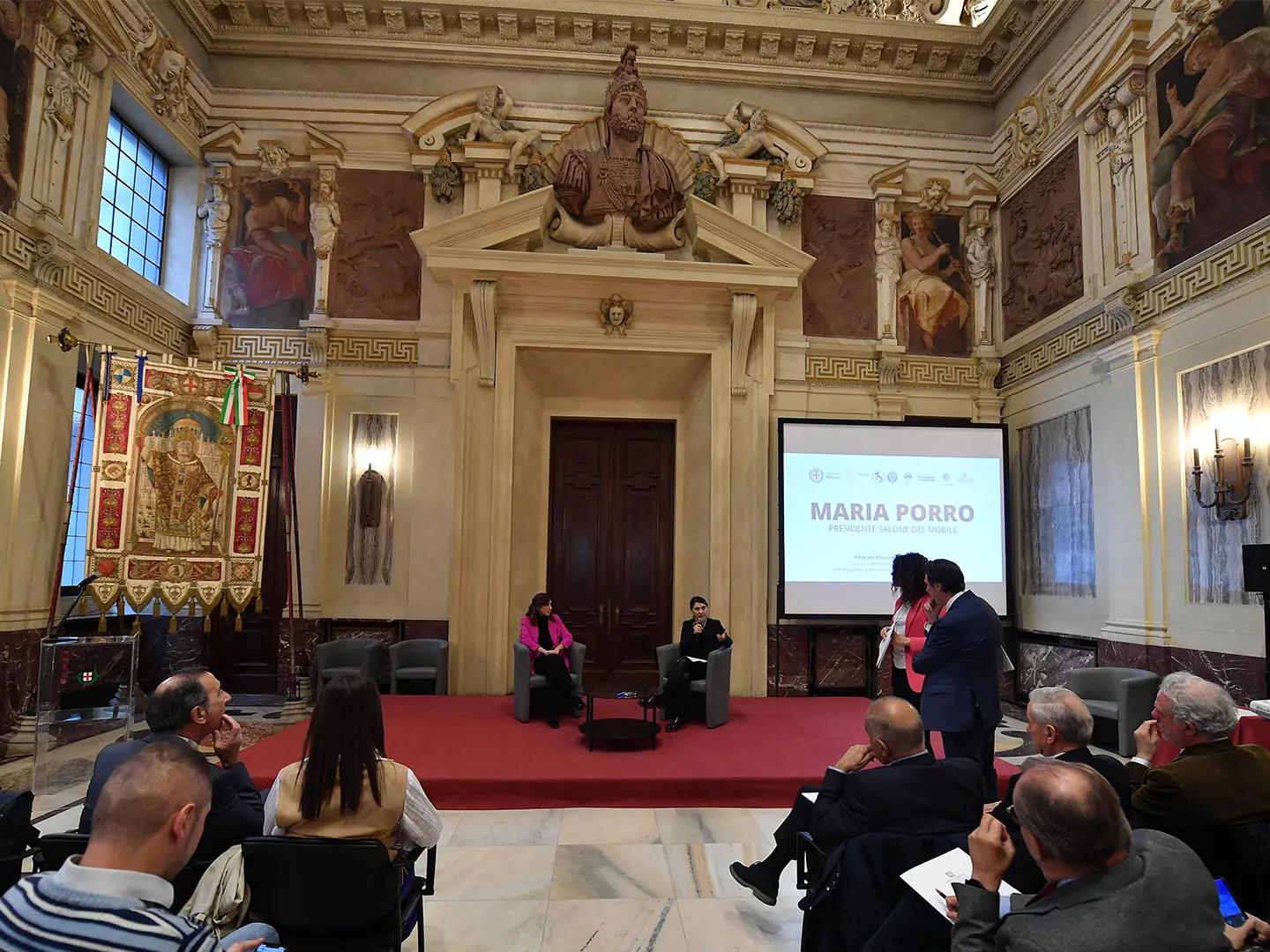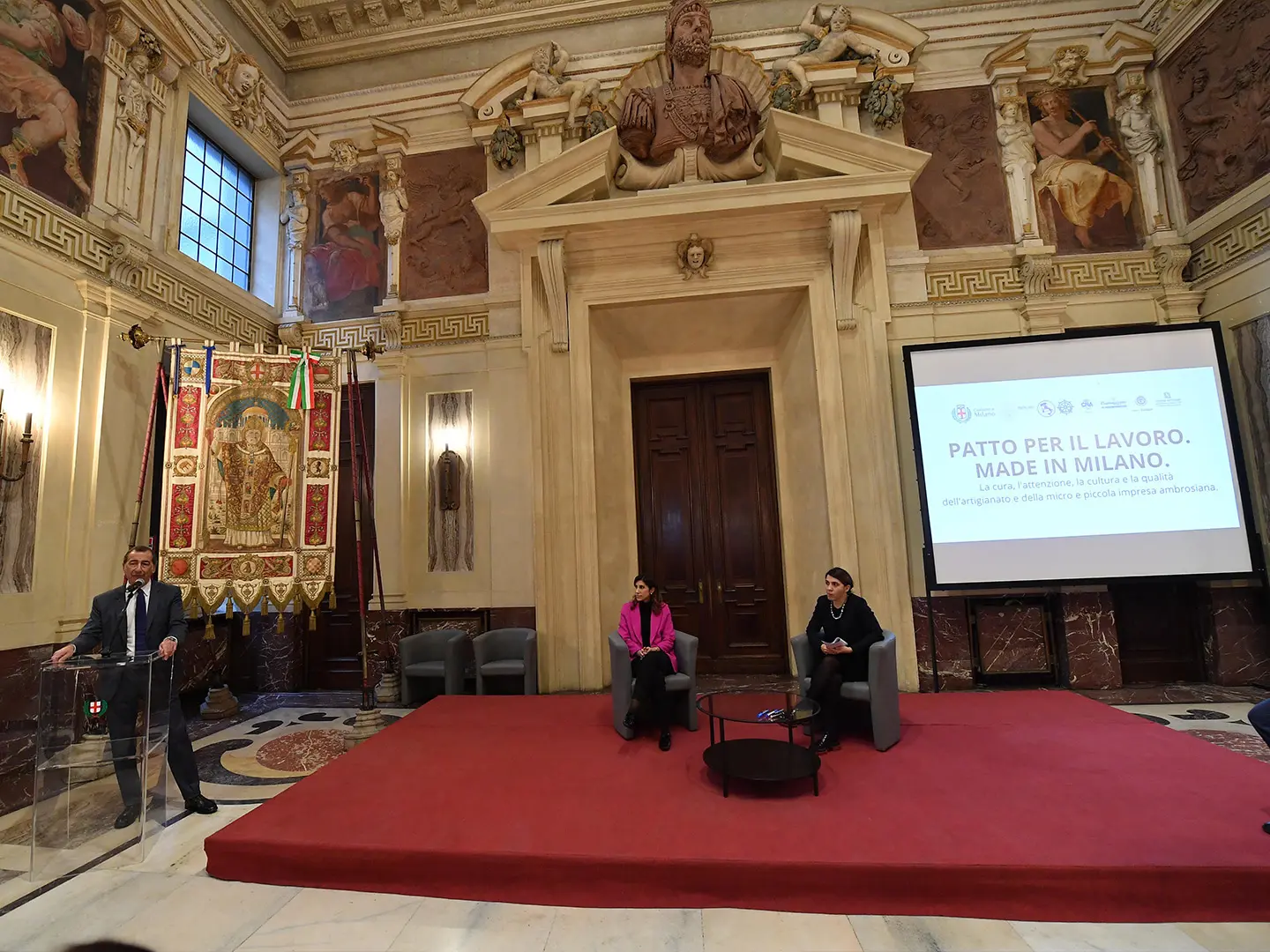A conversation with Anna Roscio, Executive Director, Sales&Marketing Imprese Intesa Sanpaolo, a 2025 del Salone del Mobile.Milano partner


courtesy Comune di Milano
Maria Porro's words at the signing of the Pact for Work between the municipality of Milan and trade associations, as reported in the pages of the newspapers

On 15 November, an event was held at Palazzo Marino dedicated to the future of craftsmanship and the city of Milan, giving ample space to the debate on training and generational turnover
On Tuesday, 15 November, the Alessi Hall at Palazzo Marino in Milan hosted the “Jobs Pact. Made in Milan. The Care, Attention, Culture and Quality of Milanese Crafts and Micro and Small Businesses” event, announcing an accord signed by the municipality, Unione Artigiani and other trade associations,
Maria Porro, president of the Salone del Mobile.Milano, and Alessia Cappello, Councillor for Economic Development and Labour Policies, opened the proceedings on an afternoon that featured a number of speakers from a variety of fields, plus five directors from the Milan craft associations who signed the pact. The debate revolved around training and placing young people in the craft labour market, a sector in which, partly as a result of the peculiarities of the city’s jobs market, specialized technical figures are becoming harder and harder to find.

courtesy Comune di Milano
Porro said: “Training is of paramount importance today if we are to promote and include new generations in crafts and small industrial enterprises, which are such a crucial element for our industry. We must ensure that great masters’ craftsmanship is passed on and cross-pollinated with the latest technological developments, enabling people to leverage renewed skills as a tool for growth and evolving tradition, as a way of redesigning the future of wood design.”
On Saturday 13 November, the Corriere della Sera newspaper published Unione Artigiani figures according to which some 27,000 businesses and at least 50,000 workers in and around Milan are employed in “activities vital to metropolitan life, closely bound up with quality and the attractiveness of the capital of Made in Italy.”
Published in the newspaper Libero the day after the signing ceremony, an article by Dino Bondavalli stressed, “the intention behind this Pact is to contribute more and more actively to entrepreneurial revitalization, employment growth and inclusiveness.” The article covered Maria Porro’s vision: “The wood/furniture supply chain in Italy is worth €49 billion and employs some 290 thousand people, with Lombardy and Veneto its top regions. However, despite posting growth during Covid, and despite being an exciting industry that allows its employees to engage with the whole world, it is struggling to recruit new employees.”

courtesy Comune di Milano
Journalist Valentina Rigano reported Milan Mayor Giuseppe Sala’s words: “Craft associations and small businesses signing up to the Jobs Pact is not a bureaucratic move. The historical times we are living through require us to take action to create jobs. This is the right time for ideas and solutions. We can only find them together: small as it may be, the artisan and industrial business sector makes a significant contribution to Milan and indeed all Italy’s development and growth.”
Councillor Cappello pointed out that “reflecting on training with reference to a sector – the sector of craftsmanship – that has long suffered a lack of adequate generational change is more necessary than ever. Rather than being a talking shop, this event is part of an ongoing dialogue and collaboration. As more and more organizations sign up to the Jobs Pact, it is destined to become more and more important. If Milan is to be a city of education, opportunity, good jobs and revitalization, we must engage chorally, network, cooperate and support one another. I wish to thank the trade associations who, by signing this Pact today, have demonstrated a willingness to go down this path with us.”












